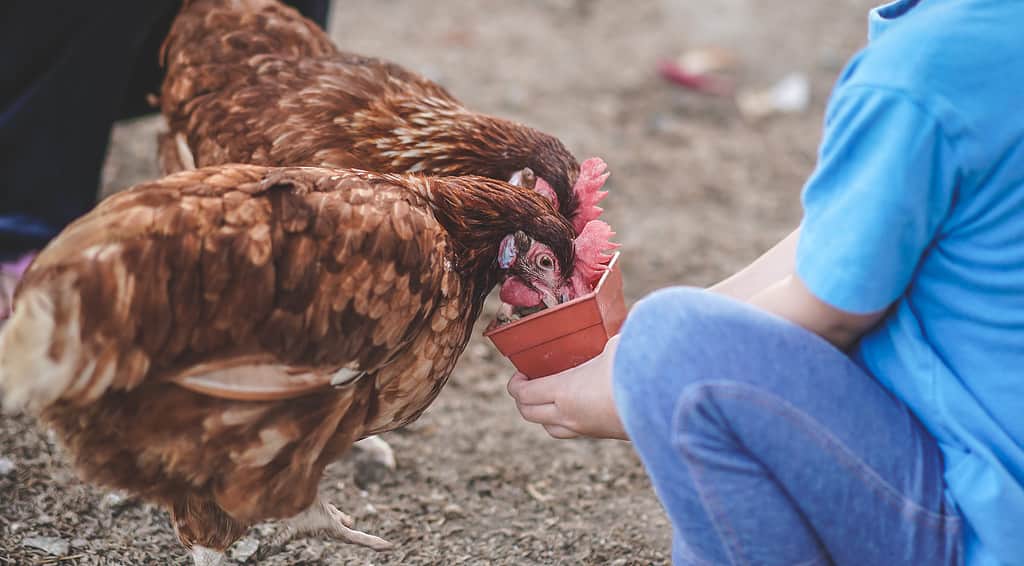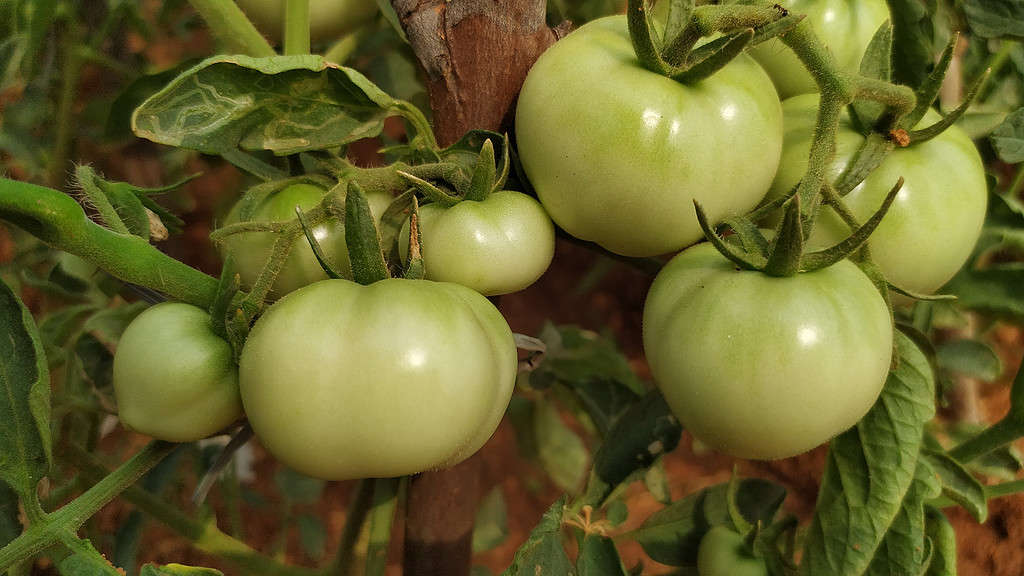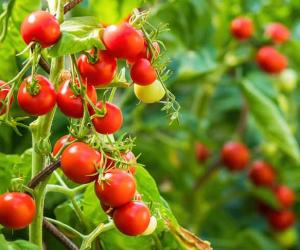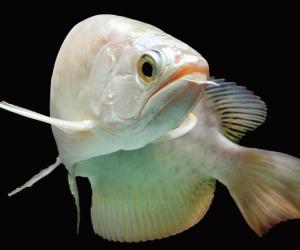Can Chickens Eat Tomatoes?

©RB Stocker/iStock via Getty Images
Summertime produces a bounty of fresh fruits and vegetables, which includes a variety of tomatoes. We look forward to them all year and enjoy them fresh, dried, and frozen for future use. Delicious raw or incorporated in a variety of recipes, they offer plenty of antioxidants, minerals, and vitamins. For those who have a garden, there can be an overabundance of tomatoes that are often shared with friends, family, and sometimes even pets. However, before we share any foods with our pets or farm animals, we need to know if they are healthy for them to eat by making sure there are no harmful ingredients. As far as chickens are concerned, they can eat tomatoes. They love them! Chickens enjoy a diet complete with a variety of foods beyond only insects and grains.
Why Tomatoes are Healthy for Chickens
A happy chicken is a productive chicken, and they love treats just like many other animals. Chickens are omnivores and can eat just about anything, including meats, insects, fruit, nuts, and vegetables. Importantly, when feeding tomatoes to chickens, make sure they are ripe. Because unripe or green tomatoes contain a toxin that is poisonous to animals and humans and can cause serious health problems. If you are wondering if chickens can only eat fresh tomatoes, the answer is no! In addition to fresh tomatoes, they can also eat them cooked. Cooking green tomatoes breaks down the toxin for those wondering about fried green tomatoes! Also, leftover spaghetti sauce or other leftover tomato-based dishes will provide a delicious and healthy treat. Furthermore, sodium is not good for chickens, so refrain from giving them spicy or seasoned tomatoes.
As far as nutrition goes, tomatoes offer:
- Vitamin C – an antioxidant that boosts the immunity of the flock
- Vitamin K and B9 (Folic acid) – for a healthy heart, an aid in blood clotting, strengthen bones, and to aid in genetic damage
- Potassium – to maintain normal cell fluid level
- Fiber – to aid in digestion and food absorption
- Lycopene, Naringenin, and Beta-carotene – to boost growth
How to Feed Chickens Tomatoes
Since we have established that tomatoes are good for chickens, the question then becomes, “How many tomatoes are too much for your chicken?” The rule to follow is that when giving tomatoes as a treat, they should be as a supplement to their regular diet, and a good measure to follow is to give them only about 10 percent of their total diet. Just remember to only give them ripe tomatoes. Additionally, chickens can eat the entire tomato, seeds, and all. It is best to cut them into chunks before feeding and to distribute them among other foods they are fed. The best time of the day to feed any treats is their evening meal. These same rules apply to chicks, who should eat starter feed until they reach 6-8 weeks old. Afterward, they can eat anything the adults can.
Tomatoes can either be fed chopped, left whole, or hung for your chickens to peck and have something to interact with. If giving chickens tomatoes from the store, don’t forget to wash them. Also, avoid giving your chickens tomatoes that have been sprayed with insecticides.
Things to be Aware of

©Dr.E.Srinivas/Shutterstock.com
While chickens can eat all parts of a tomato, including the seeds, excluding leaves, stems, flowers, and any green tomatoes. Tomatoes are a member of the nightshade family and contain solanine, a substance toxic to humans and animals. Green tomatoes contain traces of it in them. Solanine exists in the green parts of the tomato plant as a repellent from things that try to feed on them. The poison in the leaves can cause neurological issues, diarrhea, lethargy, and gastrointestinal upset in chickens. As a reminder, any part of the tomato that is green is not good for a chicken to eat. Remove the stalk or stem before feeding a ripe tomato to your chicken. In addition, avoid feeding chickens moldy tomatoes as they can harbor toxins like aflatoxin, which is harmful to animals and humans.
If chickens are kept in the same area as tomato plants, make sure to enclose the plant so that the chickens can’t eat any part of them that could be harmful. Chickens generally will stay away from harmful things, and tomato plants taste bitter, but it’s best to be safe. If they accidentally get into the garden and eat any part of the plants, take them to the vet immediately.
In Conclusion
Tomatoes are good as a treat in moderation, but should not be used as a replacement for any other feed that is normally given. When given too many tomatoes, your chicken could develop runny stool. This could become a big problem as they could step in it, lay in it, and spread it all over the run. Too many tomatoes in their diet can also affect how yolks taste as well as the frequency of their egg laying.
Remember to keep snacks to a minimum following the guidelines mentioned above. A fat hen will have issues laying eggs, and they can also lay overly large eggs. This can cause health issues, such as egg binding and yolk peritonitis, that are potentially life-threatening. Furthermore, make sure to add oyster shell grit to maintain a healthy beak and always provide plenty of fresh water.









